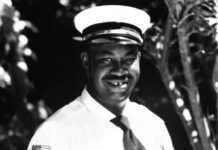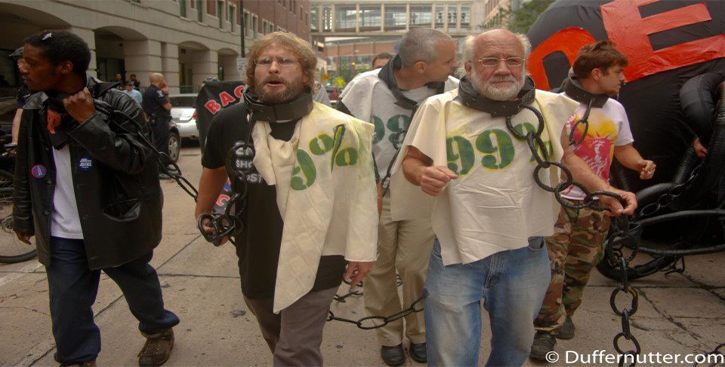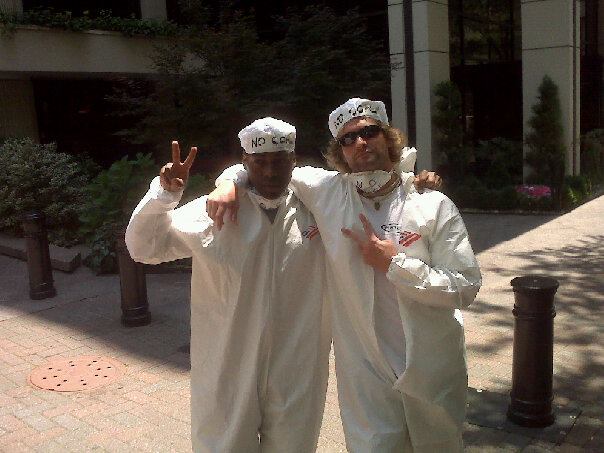Matt Pitcher made countless deals for small amounts of cocaine in places like Jack-in-the-Box and Burger King, so he was eager to have dinner with a friendly stripper at an upscale restaurant to learn how he could access larger, more profitable amounts of drugs.
He preferred the “dinner and drinks” method of scoring narcotics to other practices like following a heroin dealer on a goose chase around Charlotte or the nerve-wracking street exchanges for crack. And he now professes that while prowling concert parking lots for vans full of psychedelic mushrooms or large quantities of LSD was just as much fun as checking the clubs for ecstasy, he was partial to the low-key exchanges where the chances of getting robbed, “made,” or killed were slim.
“I have bought nearly every single drug you can buy,” he chuckled matter-of-factly from his home in Marathon. A former youth minister, college football player and failed actor, Pitcher spent a decade working street crimes, narcotics and vice for Charlotte-Mecklenburg Police Department (CMPD). His affable nature and thespian training would later take him deep undercover on two major cases that are now the subject of a popular podcast and will soon be featured on an upcoming episode of A&E’s “Undercover: Caught on Tape.”
“Politically Incorrect” is Pitcher’s first installment on the “Small Town Dicks” podcast and covers a year-long undercover operation that follows him posing as a wealthy businessman looking to enter the drug trade – only to be led directly to the mayor’s office.
The show was so popular the producers brought Pitcher back to discuss his infiltration of an eco-terrorist group determined to blow up the 2012 Democratic National Convention.
A third pod was released just a couple months ago and delves into Pitcher’s investigation of a gruesome 2018 rape and murder of a Marathon prostitute whose body was found near Vaca Cut – the perpetrator of which received the death penalty earlier this year.
Pitcher admits he was hesitant when producers for “Small Town Dicks” reached out and asked him to share a story of how a drug deal evolved into a high-level political corruption case complete with organized crime syndicates, celebrities and a six-figure expense account funded by the FBI.
“For years I didn’t share those stories with anyone except my wife,” he said. Today he credits a medically-forced retirement and the podcasts for helping him deal with the PTSD resulting from his time in law enforcement.
Most of the time his laughs are easy and his jokes are relentless, but his face can lose color quickly and his words are chosen more carefully when describing some of the horrific scenes from his career with the CMPD and eventually the Monroe County Sheriff’s Office.
He’s dealt with it all, from rapes, murders, beatings, shoot-outs and executions to outright torture and human trafficking.
Pitcher relocated to Marathon from Charlotte in 2015. “I left because if I stayed in Charlotte I would be in danger,” he said. “They did not want me there.”
“They” included members of international crime organizations and high-ranking members of the CMPD who were “on the take” with any number of the criminal factions operating in Charlotte.
Pitcher knew it was time to leave. The years of working street crimes undercover had taken a toll on not only his wife and young son, but on his psyche.
Assigned to one of the most crime-ridden districts in the Charlotte-metro area, his first few years of police work revolved around chasing street-level drug dealers by car, bike or foot and he found himself scuffling with perpetrators on a daily basis.
“I was literally fighting crime with my bare hands,” he said. “Basically every single night you were in foot chases and regularly in fights. Tons of murders there all the time. Shootings all the time – more times than I care to know.”
A standout defensive back in high school who earned a spot on Wingate University’s football roster, he employed his speed and tackling tactics in his police work, and his foot chase success rate earned him the nickname “The Running Man.”
But his most valuable skill set, and one that saved his life on more than one occasion, was his ability to gain a person’s trust.
The street-level drug-dealers-turned-informants would share tons of info – same for the honest old ladies on the stoops of the ghetto. He could make a serial-killing rapist apologize for wasting his time and could get anyone from politicians, drug dealers, strippers, terrorists and mob bosses and various other unhinged individuals to develop a quick affinity for his company.
Growing up in Pennsylvania, Pitcher’s childhood helped mold him into a genuinely relatable person.
Battling a learning disability and bullies in elementary school and working as a youth minister on summer breaks from college gave Pitcher a unique perspective. He developed a real bond with the community he served – specifically “David 3,” or the ghetto to which he was assigned.
On any given day or night, Pitcher could be involved in a gang shootout or shoot the breeze with the old ladies who hung out on the stoops of the projects.
“I really miss the projects,” he said. “Those ladies told the truth and had the best stories. It was generally just a great time and I enjoyed it.”
In regard to the street-level dealers, “they are trying to make a buck, whether it’s legal or not,” he added. “You have to look at it from their side. It was never personal. I have a job to do and I am going to do mine. You have yours. As long as you don’t try to kill me or anything like that, no harm, no foul.”
And even though he spent the better part of 15 years working heinous crimes, chasing some depraved criminals in the most deplorable settings, Pitcher never once used his service pistol.
“I am actually very thankful I never had to use my weapon,” he said.
While his hands are visibly broken from the fights and certain songs take him immediately back to the clubs or streets, Pitcher is now enjoying the later part of his life where he can celebrate his teenage son’s accomplishments and be home every night to enjoy dinner with Reetta, his wife of nearly 20 years.
“During that time, we had completely different lives,” he said of his years undercover. “We had very little communication and she learned to live without me. She was a rock star who kept the family together.”
Have a question for Matt?
He will be featured on a special edition of the Keys Weekly podcast coming this February. Send your questions to jason@keysweekly.com and put “Undercover” in the subject line.

























